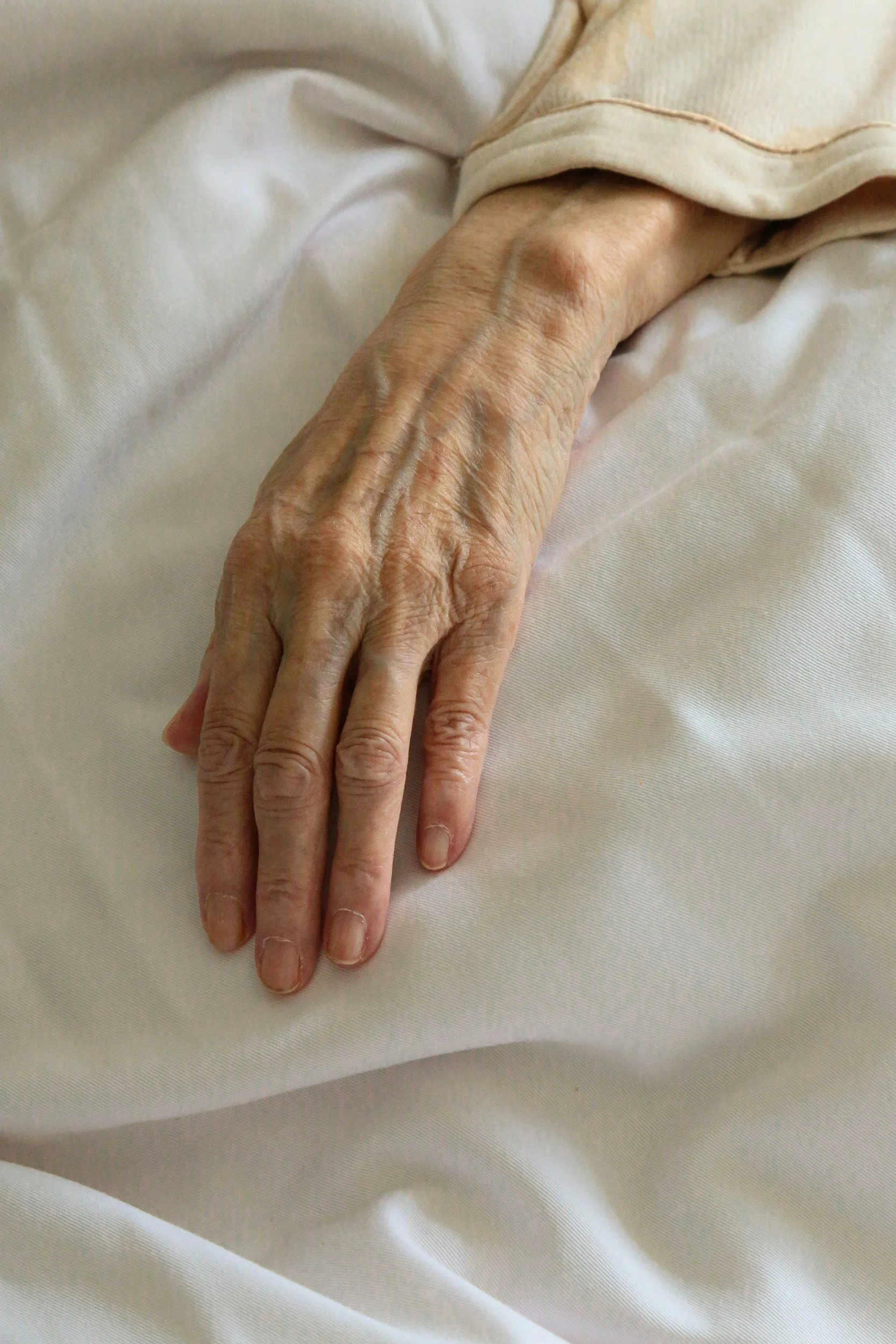James
The box from James arrived months after my birthday, tattered and misshapen. In it, a black-and-white striped purse, gray scarf, face masks, a knockoff Purple Rain CD, and two cardigans: one small yellow one for my eleven year old daughter and another for me the color of a bright orange Boston autumn leaf where James and I had gone to college together.
There was also a letter written on the backs of torn greeting cards peppered with his trademark scraggly stars, its points all lunging toward the sky. He’d been babysitting his brother’s kids on Long Island where I grew up and had to take the train. “I’m so in love with the LIRR agents and their gelled hair and stupid hats,” he wrote. He’d also written about how he’d banged on the post office’s door right as it closed and the attendant had almost kicked out. He was sorry for sending everything so late.
It was late, yes, but it was a wonder he’d managed to send the box at all. For decades he was my flaky friend–we all have one–whose slippiness made him all the more alluring. But when you caught James, he was yours. Always asking questions about your life, always making sure you had what you needed. Whenever I’d visit from Oregon he’d sleep on the couch while he gave me his small bedroom in Park Slope, a cocoon of poetry books and lavender incense.
Once, I was visiting during a particularly hectic moment. A delayed flight, a wedding, too many friends and family I needed to see. The grind was wearing me down. James insisted on sharing a pint of Ben & Jerry’s Chunky Monkey before making me lay down. He turned up Yo La Tengo, turned on the twinkle lights, and shut the door so I could sleep. He cared for me when I couldn't do it for myself and he did it again, and again.
That was James. James, with his ice cream swirl of black hair and syrupy eyes and head-back squeal laugh. James, who dressed up as Courtney Love every year for Halloween and growled “the wiiiiiiiitch” while air strumming a guitar whenever he was annoyed. James, the outrageous storyteller who told tales of salty taxi drivers and kids eating their coats.
He spoke in indie mixtapes and emoji texts and belated packages and the occasional Tony Danza impression. Everybody he met added him to their “Top Three Favorite People,” list.
Except for the face masks still wrapped in plastic, I knew that James had salvaged the orange wool cardigan likely from the ground somewhere in Brooklyn. He was a poet and could find beauty anywhere, even in the overflowing trash outside Farrell’s bar on 7th street where I wouldn’t be surprised he found his wardrobe. The orange cardigan was a balm, a brightness when I needed relief from the relentless Portland gray skies.
I brought it with me to the upstate Catskills cabin the second year of the pandemic where I somehow knew I’d see James for the last time. It was September and his forty-first birthday. My college friends Kyle and Christine picked me up from the airport, nearly late because James had stayed out all night. His face had more wrinkles. There was white in his nostrils and his eyelids fluttered. He awoke when we stopped for groceries and insisted on cooking us dinner.
At the cabin, he flitted around the suffocating kitchen making pasta and garlic bread. Not long after the oven started smoking. He pulled out a tray of puffed garlic bread drowning in oil, its edges charred. The oil overflowed into the pan and burnt Kyle’s hand when he tried to help.
“I’m so sorry,” James said. “I’m so sorry.”
“It’s fine,” we said.
Kyle wrapped his hand in a wet paper towel. We ate the bread.
Even now, we were still pretending. James’ disappearances had increased the past year. He was always losing his phone and sometimes we’d go weeks without hearing from him. His father died of lung cancer. Shortly before the funeral, he took the family car to pick up groceries for the wake and didn’t return until three days later.
There had been an intervention of sorts. Christine lured him with eggplant parm to her mother’s home on Long Island where his family awaited. He wasn’t surprised, but he also wasn’t willing to get help. Who’s the boss? He was.
I lived so far away. While Christine and Kyle attempted to intervene, I’d text James updates about the kids and Oregon wildfires in the hopes he’d respond. It was always a relief when he did.
Hi love
So sorry I haven’t called you back. Are you on fire?!
Nervous hearing about temperatures in OR
Hope you’re okay, inside somewhere in a deep AC freeze out
Happy Pride! …it’s shame parade
everyday
🙈🌈✨
All I could think about was the similarity with my friend Colin. They’d come from the same Irish Catholic family, went to the same gay bars in Brooklyn, shared the same secret. Colin had died from an overdose six years earlier. I hadn’t seen it coming.
Over the weekend, we went on a mountain hike and I told James the secrets I was holding in the hopes that he’d tell me his. He didn’t. Secrets were all he had, and he was a master at deflecting. But we were, too, not once bringing up his addiction.
Instead, we reveled in James doing the most James thing by picking flowers in a field bordered by bare trees and frayed power lines. Kyle’s boyfriend took a photo of him holding a scant bouquet, laughing. That photo in his skinny jeans and black t-shirt would be the one we’d all tearfully slide into frames for our DIY home shrines six months later.
I saw it coming this time but still couldn’t stop it. Later that night, he blew out candles on a Fudgie the Whale birthday cake from Carvel and we ate it for breakfast in the morning. James encouraged you to follow your joy. And if that meant heaving a giant spoonful of crunchie-coated ice cream in your mouth at nine in the morning, so be it.
The weekend wasn’t long enough. On the car ride back on Sunday, we belted out Madonna and he cried, head pressed against the window, the trees outside still so lush from summer. I was wearing the cardigan and wrapped it around me tighter. We dropped him off at the bus stop for Nyack and paid for his ticket so he could see his mom. I told James I loved him and watched as the bus carried him toward home.
I didn’t go in-person to his celebration of life. I had a twice postponed trip to New Orleans with my mom and sister who lived on the other side of the country, and my teenage niece had recently flirted with death. My family needed each other. We needed joy. James would understand.
Instead, I tuned into a very pandemic-era Zoom and watched as his family and friends spoke about how he made us feel like we were the center of the universe. I’d kept the cardigan at home in my closet, terrified of losing it or staining the wool. I needed it to be there when I returned.
My sister and I went out to a music venue on Frenchmen Street later that night. I thought about James. How he would’ve loved the crowd of sweaty bodies dancing with wild abandon, the laughs between friends, the reflection of brass instruments on the orange walls, glittering like stars lunging toward the sky.
-Celeste Hamilton Dennis
Celeste Hamilton Dennis is a writer living in Berkeley, CA. Her fiction and nonfiction have appeared in various literary journals including Lunch Ticket, Entropy, Boston Accent Lit, Barely South Review, Queens Mob Teahouse, and more. When she's not pursuing solutions journalism stories at grad school or being a mom to two girls, she’s working on a book of short stories connected by her hometown of Levittown, New York.





